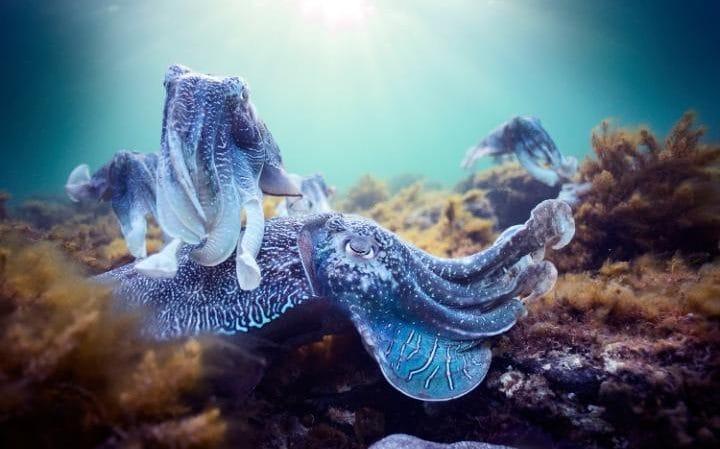Blue Planet 2: BBC announce new series with Sir David Attenborough
Sir Attenborough said: 'I am truly thrilled to be joining this new exploration'

Your support helps us to tell the story
From reproductive rights to climate change to Big Tech, The Independent is on the ground when the story is developing. Whether it's investigating the financials of Elon Musk's pro-Trump PAC or producing our latest documentary, 'The A Word', which shines a light on the American women fighting for reproductive rights, we know how important it is to parse out the facts from the messaging.
At such a critical moment in US history, we need reporters on the ground. Your donation allows us to keep sending journalists to speak to both sides of the story.
The Independent is trusted by Americans across the entire political spectrum. And unlike many other quality news outlets, we choose not to lock Americans out of our reporting and analysis with paywalls. We believe quality journalism should be available to everyone, paid for by those who can afford it.
Your support makes all the difference.Last year, the BBC aired Planet Earth II, a sequel to the highly successful documentary series of the same name, narrated by the great Sir David Attenborough.
Despite being an educational programme, the series was a hugely gripping piece of television that once again proved the corporation can make incredible documentaries.
Hoping to once again recreate success, the BBC has announced Blue Planet II, a sequel to the 2001 series that explored the world’s oceans.
“I am truly thrilled to be joining this new exploration of the underwater worlds which cover most of our planet, yet are still its least known,” Attenborough said in a statement.
The BBC hope the new series will highlight recent scientific discoveries, such as a new species of crab with a hairy chest, nicknamed the "Hoff crab” after Baywatch’s David Hasselhoff.
The series' executive producer, James Honeyborne, said: ”The oceans are the most exciting place to be right now, because new scientific discoveries have given us a new perspective of life beneath the waves.
"Blue Planet II is taking its cue from these breakthroughs, unveiling unbelievable new places, extraordinary new behaviours and remarkable new creatures.
“Showing a contemporary portrait of marine life, it will provide a timely reminder that this is a critical moment for the health of the world's oceans.”

Similar to how technology improved between Planet Earth series, filming innovations have helped the crew behind Blue Planet II capture exciting new footage that wouldn’t have previously been possible.

Watch Apple TV+ free for 7 days
New subscribers only. £8.99/mo. after free trial. Plan auto-renews until cancelled

Watch Apple TV+ free for 7 days
New subscribers only. £8.99/mo. after free trial. Plan auto-renews until cancelled
Developments include suction cameras, which can be attached to whales and sharks, “tow cams” that can ‘capture predatory fish and dolphins head-on’, and probe cameras capable of filming minute ocean life.
The show’s crew revealed they have caught numerous unusual examples of marine behaviour on camera, some of which for the first time.
Highlights include reef octopus using sophisticated hunting techniques, the giant trevally fish that catches birds while in flight, and a dive with a sperm whale and her calf.
Blue Planet II will be broadcast on BBC One later this year.
Join our commenting forum
Join thought-provoking conversations, follow other Independent readers and see their replies
Comments